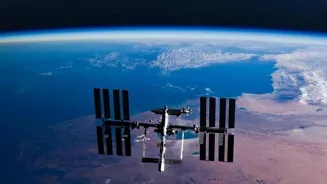Explore the ISS: Gateway to the Cosmos & Future of Space Exploration. A hub of innovation, collaboration, & discovery
In the vast expanse above us, circling earth at a speed of about 28,000 kilometers per
hour, is a marvel of engineering and international cooperation: the International Space Station (ISS).
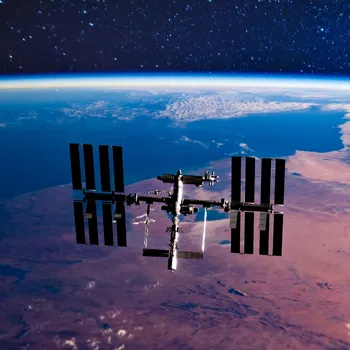
This orbiting laboratory, visible to the naked eye under the right conditions, has been a constant human presence in space since November 2000.
But beyond its impressive dimensions and visibility, the ISS holds immense importance for scientific research, technological advancement, and the future of space exploration, as well as the future of humanity as a multi-planetary species.
Its significance in furthering our understanding of the universe and preparing for deep-space missions cannot be overstated. The ISS is a testament to what humanity can accomplish when it unites for a common cause.
The ISS offers unique research opportunities in space science
The ISS serves as a unique laboratory, providing scientists with an environment unlike any on Earth. The microgravity conditions, extreme temperatures, and exposure to cosmic radiation offer unparalleled opportunities to conduct experiments across various scientific disciplines.
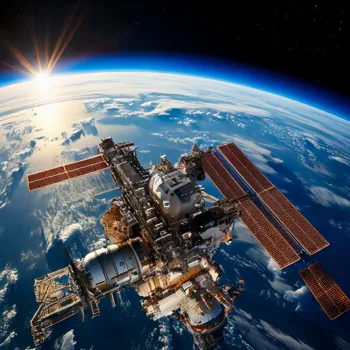
Researchers can study the effects of long-duration spaceflight on the human body, crucial for planning extended missions to the Moon and Mars.
They can also investigate the behavior of fluids, materials, and biological systems in the absence of gravity, leading to breakthroughs in medicine, materials science, and other fields.
The knowledge gained from these experiments has direct applications on ground, improving our lives in everyday ways. For example, research on bone loss in space has led to new treatments for osteoporosis on Earth.
The study of plant growth in microgravity is helping us develop sustainable food production systems that could be used in space and in challenging environments on our planet.
ISS role in testing new space tech for future missions
One of the most critical aspects of the ISS is its role in testing and developing new technologies for future space missions. The station serves as a proving ground for life support systems, advanced materials, and robotics that will be essential for exploring deeper into space.
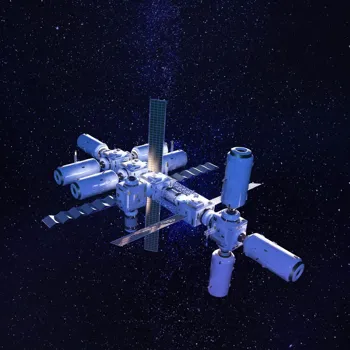
Before we send astronauts to Mars, we need to ensure that they have the tools and technologies to survive and thrive in that environment.
The ISS allows us to test these technologies in a real-world space environment, identify any potential problems, and refine them before they are deployed on more ambitious missions.
The development of closed-loop life support systems on the ISS, which recycle air and water, is a critical step towards creating self-sufficient habitats on other planets.
Similarly, the testing of advanced robotics on the station is paving the way for autonomous robots that can assist astronauts with exploration and construction tasks in deep space.
The ISS symbolizes global cooperation in space exploration
Furthermore, the ISS is a symbol of international cooperation, bringing together scientists and engineers from different countries to work towards a common goal.
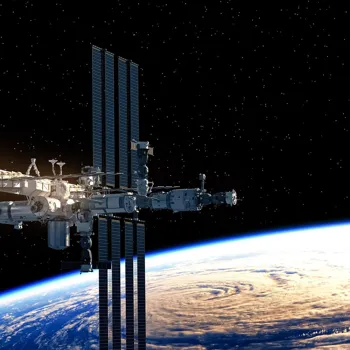
The station is a joint project involving space agencies from the United States, Russia, Canada, Japan, and Europe, countries that are major stakeholders and contributors to the mission.
This collaboration fosters goodwill and understanding between nations, and it demonstrates that we can achieve great things when we put aside our differences and work together.
The ISS has also served as a platform for educational outreach, inspiring students around the world to pursue careers in science, technology, engineering, and mathematics (STEM).
Through educational programs and live broadcasts from the station, millions of people have been able to witness the wonders of space exploration firsthand. The ISS is a reminder that space is not just for scientists and astronauts; it is for all of humanity.
The ISS benefits Earth by monitoring environmental changes and aiding disaster relief
The benefits of the ISS extend beyond scientific research and technological advancement. The station also provides unique perspectives on our planet, allowing us to monitor environmental changes and natural disasters from space.
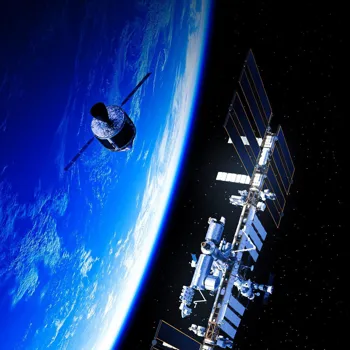
From its vantage point, the ISS can capture images and data that help us understand the Earth's climate, weather patterns, and ecosystems. This information is crucial for addressing some of the most pressing challenges facing our planet, such as climate change, deforestation, and pollution.
The Earth observation capabilities of the ISS are also used for disaster relief, providing real-time information to emergency responders during hurricanes, floods, and other natural disasters.
By giving us a global view of our planet, the ISS helps us to better understand the interconnectedness of our environment and the importance of protecting it.
The ISS is crucial for space exploration and innovation
Looking ahead, the ISS will continue to play a vital role in shaping the future of space exploration. As NASA and other space agencies plan missions to the Moon and Mars, the station will serve as a crucial platform for preparing astronauts and testing technologies.
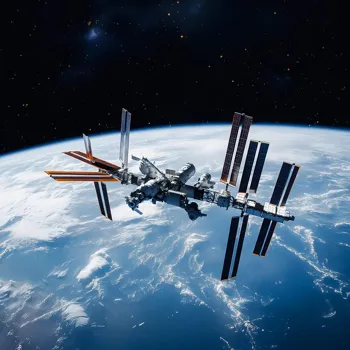
The experience gained from living and working on the ISS will be invaluable as we venture further into the solar system.
The ISS also serves as a stepping stone for commercial space activities, with private companies using the station to conduct research, develop new products, and even offer space tourism experiences.
As the space industry continues to grow, the ISS will play a key role in fostering innovation and creating new opportunities for economic development. It is a beacon of hope, a symbol of human ingenuity, and a testament to the power of international collaboration.
As we continue to explore the cosmos, the ISS will remain a vital resource for advancing our knowledge, pushing the boundaries of technology, and inspiring future generations of explorers.
